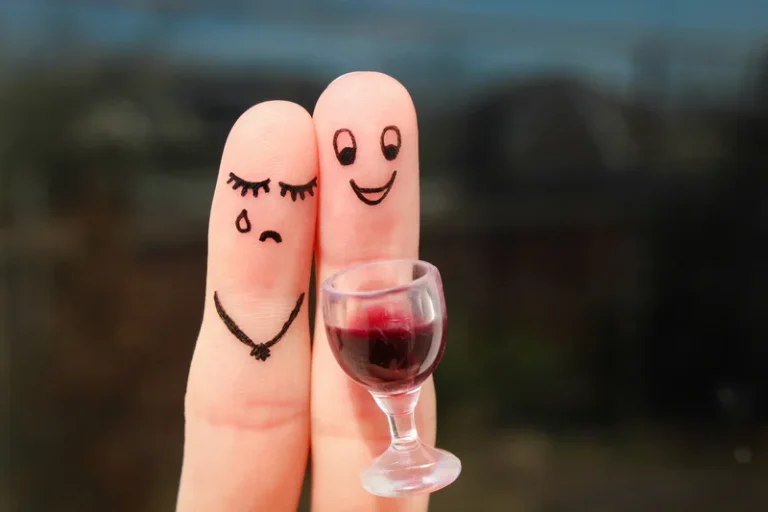
This is important because for some couples, interactions about alcohol might occur more frequently than interactions about other topics, especially for couples in which alcohol use and abuse plays a major role in day-to-day life. For example, Halford & Osgarby (1993) reported that over 80% of men and women in their sample reported frequent disagreements about alcohol consumption. Several pieces of evidence suggest that talking about alcohol might provoke different kinds of interactions than talking about another conflict topic or about a benign topic. Second, Halford and Osgarby (1993) found that marital disagreements about alcohol were strongly related to decreased levels of marital satisfaction and to increased number of steps toward divorce. This suggests that we might see larger effects (i.e., larger differences between alcoholic and nonalcoholic couples), and therefore more consistent effects across studies, if alcoholic couples discussed alcoholrelated problems. Experimental methods represent the gold standard in assessing causal relationships and further reveal evidence of partner and interaction effects in IPA behavior.
- Because marital satisfaction is an intrapersonal measure of marital functioning, the effects of wives’ alcoholism on husbands’ marital satisfaction were of primary interest.
- This shift in language reflects current awareness of AUD as a mental health condition, not a personal choice.
- We all like to do our best for our children but sometimes we are not too sure what that is.
- Participating in support group meetings helps reinforce positive behaviors and offers a platform to share experiences and solutions.
- Natural consequences may mean that you refuse to spend any time with the person dependent on alcohol.
Addiction Destroys Dreams, We Can Help

These behaviors can strain trust, create conflicts, and potentially endanger the well-being of individuals involved. Because alcohol use disorder is a complex mental health condition that can be mild, moderate, or severe, clinicians evaluate https://ecosoberhouse.com/article/effects-of-alcohol-on-the-body-is-drinking-alcohol-bad/ 11 total criteria, including those dealing directly to do with relationships.5 If your relationships are showing any concerning signs, it may be time to seek guidance and support. Several other studies reported marginal (Jacob, Dunn, & Leonard, 1983) or nonsignificant correlations between spouse’s alcohol use/abuse and total scores on the DAS (Halford & Osgarby, 1993; Katz, Arias, Beach, Brody, & Roman, 1995). First, these studies have relatively small sample sizes compared to those that found significant correlations, and suggest that they do not have enough power to detect the effect.
My Partner is an Alcoholic: How to Cope with an Alcoholic Partner
Open and honest communication is the foundation for addressing alcohol-related challenges in relationships. It’s important for both partners to express their concerns, feelings, and expectations regarding alcohol consumption. By fostering a safe and non-judgmental space, couples can have productive conversations about the impact of alcohol on their relationship.

How Does Alcohol Affect Relationships?
Cutting the drinking off before it can develop into addiction can help prevent its devastating outcomes. Attending educational programs can help you or your loved one identify the signs and negative effects of alcohol to avoid addiction. Alcohol use disorder severely impacts an individual’s personality and, as a result, can make them unrecognizable from the person they were before they started drinking. People with alcohol addiction often become secretive over time to hide their dependence out of fear, shame or guilt. When a person has a problem with alcohol, it doesn’t just affect them; it also impacts the people in their life.5 Below are some of the ways alcohol can affect relationships of various types. Alcohol has a profound impact on behavior and dynamics within relationships.

1. Evidence for causal inference

For example, AA holds open meetings that can be attended by family and friends who want to be actively engaged in your recovery. AA’s sister organization, Alcoholics Anonymous Family Groups (Al-Anon) and its subgroup Alateen, offer safe spaces just for family members of people with addictions. Some signs include frequent arguments about drinking, secretive behavior around alcohol, and broken promises to stop or reduce drinking. Treatment options can include individual therapy, family counseling, and couples therapy.
BetterHelp offers affordable mental health care via phone, video, or live-chat. The most important thing you should avoid doing is blaming yourself and taking negative reactions personally. Taking an honest look at your relationship with alcohol is not easy, but for many of us, it is necessary. If unpacking all of this on your own is causing excess stress or anxiety, consider asking an expert for help. There’s also a good chance you’ll feel less anxious, depressed, or fatigued. Plus, the longer you go without alcohol in your system, the more likely you’ll experience continued improvements to your health.

You may interact with friends on a daily basis or less frequently, with some being closer friendships than others. In short, they might not feel ready to seek support until they begin to recognize the ways drinking affects their daily life and relationships. Measures of alcohol consumption refer to the quantity and frequency of alcohol consumed in a given period. Typical measures of alcohol consumption will assess how often an individual drinks alcohol and relationships (frequency) or how much an individual drinks in one sitting (quantity). Quantity–frequency indices are often employed by studies in the current review and are used to calculate average daily or weekly estimates of a drinkers’ volume of alcohol consumption.
The effect of beer intake was examined by Romeo et al. 52 who found that one month of daily beer consumption (equivalent to 12g/day of alcohol for women and 24 g/day for men) did not result in significant increases in BMI or WC compared to abstention. Biceps skin fold was the only anthropometric measurement that was increased in their participants after the beer drinking condition 52. Fletchner-Mors et al. 53 found that replacing 10% of total daily energy intake during a weight-loss intervention with either grape juice or white wine resulted in similar weight loss, with the white wine group showing a slightly higher (although not statistically significant) weight loss. In this case both diets were isoenergetic so this is not a surprising result, as the thermic effect of food was likely higher for white wine than grape juice 53, 54. Finally, more recently, Cresci et al. 55 found that self-reported alcohol intake was not a significant predictor of success or failure in losing 5% of body weight during a 6-month weight loss intervention. One of the primary questions in the marital interaction literature asks whether alcoholic couples exhibit different levels of positive, negative, and problem-solving behavior than do distressed couples without alcohol problems, and nondistressed, nonalcoholic couples.
- These different operational definitions probably contributed to unreliability and measurement error across studies.
- When you increasingly choose to drink rather than doing previously enjoyed activities with your significant other or friends, you may need to examine your motives for these choices.
- Former children of alcoholics are more likely to misuse alcohol themselves.
- The study of alcohol-facilitated IPA has been dominated by the use of traditional analytic methods such as analysis of variance and multiple regression.
- Given the strong association between alcohol use and these marital processes, longitudinal studies that evaluate their course over time and their contribution to dissolution are paramount.
The survey results showed that people in committed relationships who use alcohol during intimacy were more likely to be sexually aggressive toward their intimate partners. Being in a relationship with someone with alcohol use disorder can be challenging. Your husband may pick fights with you when he drinks or you’re no longer as intimate as you were before. You may feel like alcohol has ruined your relationship or is the cause of your divorce. But there are ways you can recognize when alcohol might be negatively affecting your relationships — and when it may be time to get help. When drinking becomes the focal point of every activity, alcohol addiction is a concern.
